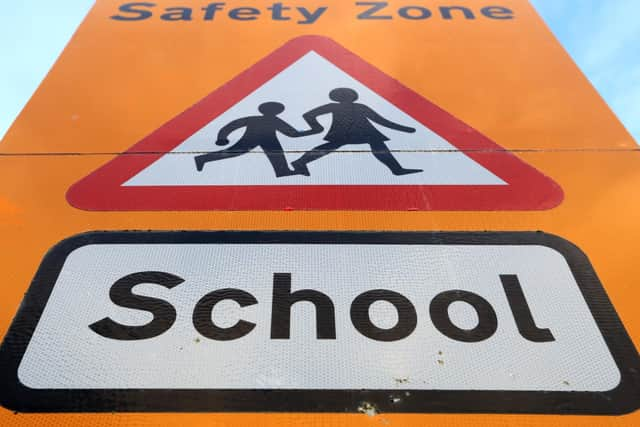It’s all very well calling for an end to Ofsted but what will replace it? - Jayne Dowle
That’s one for the current Secretary of State for Education to chew over. Parents and teachers will be looking to her to provide some detailed and constructive answers, especially as not one, but two new damning indictments are now calling for an end to Ofsted.
Ofsted is fuelling a ‘football manager culture’ of firing school heads, according to the Institute for Public Policy Research (IPPR), based on an “over-reliance on punitive control” that is driving teachers out of the profession and distracting schools from making much-needed improvements.
Advertisement
Hide AdAdvertisement
Hide AdMeanwhile, Beyond Ofsted, an inquiry chaired by former schools minister Lord Jim Knight, and funded by the National Education Union, finds that Ofsted is now seen as ‘toxic’ and ‘not fit for purpose’.


It is in need of major reform which should include an end to single-word judgements like ‘outstanding’ or ‘inadequate’, the inquiry said, as these were too simplistic to describe a whole school, and must be replaced with more meaningful and detailed verdicts, a point on which the IPPR agreed.
I’m old enough to remember when Ofsted came into being. Back in 1992, a rigorous method of assessing all education facilities, except universities, was introduced by John Major’s Conservative government. Until then, responsibility for quality assessment fell to Her Majesty’s Inspectors (HMIs), but there had been concerns about bias and whether the system could cope with comprehensive schools.
The first new assessments took place the following year, 1993, and so teachers and childminders and nursery owners and FE lecturers all began to dread the words ‘Ofsted inspection’.
Advertisement
Hide AdAdvertisement
Hide AdIf you’ve ever worked in any kind of school you’ll know that awful feeling of dread when with sometimes just a few days’ notice, you learn that the inspectors are on their way.
Years ago, I taught in a college which delivered further education courses in media, journalism and the creative arts. Although I was far too low down the pecking order to be called before the judges, I remember the abject fear amongst my colleagues.
These fresh calls for re-assessment of assessment come in the wake of the suicide of headteacher Ruth Perry, who died in January this year. Her family said that stress associated with an Ofsted inspection contributed to her death; Caversham Primary School in Reading, where she worked, was waiting for a report to be published downgrading the school’s rating from ‘Outstanding’ to ‘Inadequate’. There is absolutely no doubt that radical reform of the inspection system is well overdue. When inspections began more than 30 years ago, a team of specialists would descend on a school, maybe for a week, observing lessons carefully, speaking with pupils, taking on board parental views, and I’m told, generally engaging in a positive and meaningful way with teachers and school leaders.
Inevitably, the idealistic aims of the exercise have been massively diluted over the years. Inspectors might fly in for just a day or two, take a broad-brush approach to the general condition of a school and sum up their judgments quickly before moving on to the next one.
Advertisement
Hide AdAdvertisement
Hide AdThe stress-ridden situation has not been helped by the backlog in inspections, made worse by the pandemic hiatus. In November 2022, it was found that hundreds of schools previously rated ‘Outstanding’ had not been re-visited for years, because of a clause which exempted them from regular re-inspection – this has now been lifted.
The Beyond Ofsted findings calls for inspectors to work with schools to develop teaching expertise rather than compliance, offering more constructive analysis than the delivery of a single-word damning judgement. It also suggests that the inspection process should become entirely independent of government, so it is not subject to the vagaries of successive Education Secretaries.
Key however, to the recommendations, is that each school should conduct its own self-evaluation, so that “accountability will be principally to parents and the wider community”. This demands, of course, that schools are in communities which are engaged and able to administer accountability. In many deprived areas, this just isn’t the case and parents struggle to even get their children to school in the morning.
Serious thought must be given as to how the system can be re-imagined so that it is fair to all schools, teachers, parents and children.
